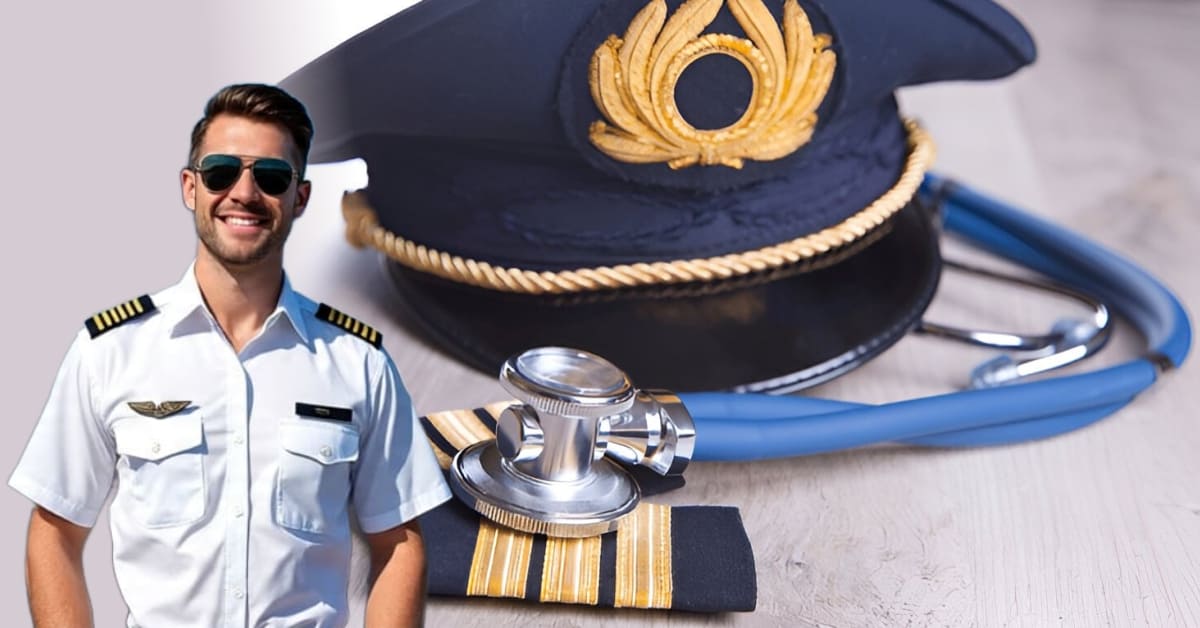What are the medical requirements to pursue a pilot training course?
Posted on : 20 November, 2025 5:24 pm
Becoming a pilot is not just about passion for flying—it also demands excellent medical fitness. Aviation authorities such as DGCA (India), FAA (USA), and EASA (Europe) require candidates to meet strict medical standards before they can undergo flight training or hold a license. In India, the Directorate General of Civil Aviation (DGCA) has two key medical certifications for aspiring pilots: Class 2 Medical (for Student Pilot License) and Class 1 Medical (for Commercial Pilot License).
Step 1: Class 2 Medical Examination (Initial Stage)
Every aspiring pilot in India must first clear a Class 2 Medical Examination, which can be done through DGCA-approved doctors across the country.
Tests Conducted in Class 2
-
Vision Test: Must have 6/6 eyesight (correctable with glasses/contacts). No color blindness.
-
Hearing Test: Should hear conversational speech without aids. Audiometry may be conducted.
-
General Physical Exam: BMI, height, and weight checked.
-
Blood & Urine Tests: To check diabetes, kidney function, etc.
-
Cardiac Health: ECG to rule out abnormalities.
-
Respiratory & Neurological Check: Lungs and nervous system examined.
Outcome: If fit, DGCA issues a Class 2 Medical Assessment, which is valid until you upgrade to Class 1.
Approximate Cost: ₹5,000 – ₹8,000 (varies by doctor and location).
Step 2: File Number Creation with DGCA
Once you clear your Class 2, you need to apply for a DGCA File Number, which acts as your permanent aviation medical record.
-
Apply through the DGCA eGCA portal.
-
Upload Class 2 assessment and documents (ID proof, photos, etc.).
-
File number is required before proceeding to Class 1 medicals.
Step 3: Class 1 Medical Examination (For CPL & Advanced Training)
Before applying for a Commercial Pilot License (CPL), you must pass the Class 1 Medical Examination, conducted only at DGCA-approved centers like:
-
Air Force Medical Boards (IAM Bengaluru, AFCME New Delhi, etc.)
-
DGCA-approved civil medical examiners (listed on the DGCA website).
Tests Conducted in Class 1
-
Advanced Eye Test: Includes slit-lamp exam, corneal evaluation, and night vision tests.
-
ENT & Hearing: Full audiometry across different frequencies.
-
Cardiac Fitness: ECG, treadmill test, blood pressure monitoring.
-
Lung Function Test (Spirometry): To check respiratory capacity.
-
Neurological & Psychological Evaluation: To assess alertness, reflexes, and stress handling.
-
Blood & Urine Tests: More comprehensive than Class 2.
Outcome: If declared “Fit,” you are issued a Class 1 Medical Certificate by DGCA, required for CPL training and airline jobs.
Approximate Cost: ₹10,000 – ₹15,000.
Step 4: Renewal Requirements
-
Class 1 Medical must be renewed every 12 months (6 months if over 40 years old or for airline pilots).
-
Class 2 Medical usually renewed every 2 years (but varies by age and authority).
Tips to Clear Pilot Medical Exams
-
Maintain healthy BMI, diet, and exercise routine.
-
Avoid smoking, alcohol, or any medication without prescription.
-
Get a basic eye and ENT check-up before booking your exam.
-
If you have any medical history (like asthma, diabetes, or surgery), keep all documents ready.
Conclusion
The medical journey to becoming a pilot may seem challenging, but it ensures the safety of pilots, passengers, and aircraft operations. From Class 2 to Class 1 medicals, every stage is designed to test fitness for flying. With proper preparation, a healthy lifestyle, and the right guidance, aspiring pilots can successfully meet these requirements and take their first confident step into the skies.

